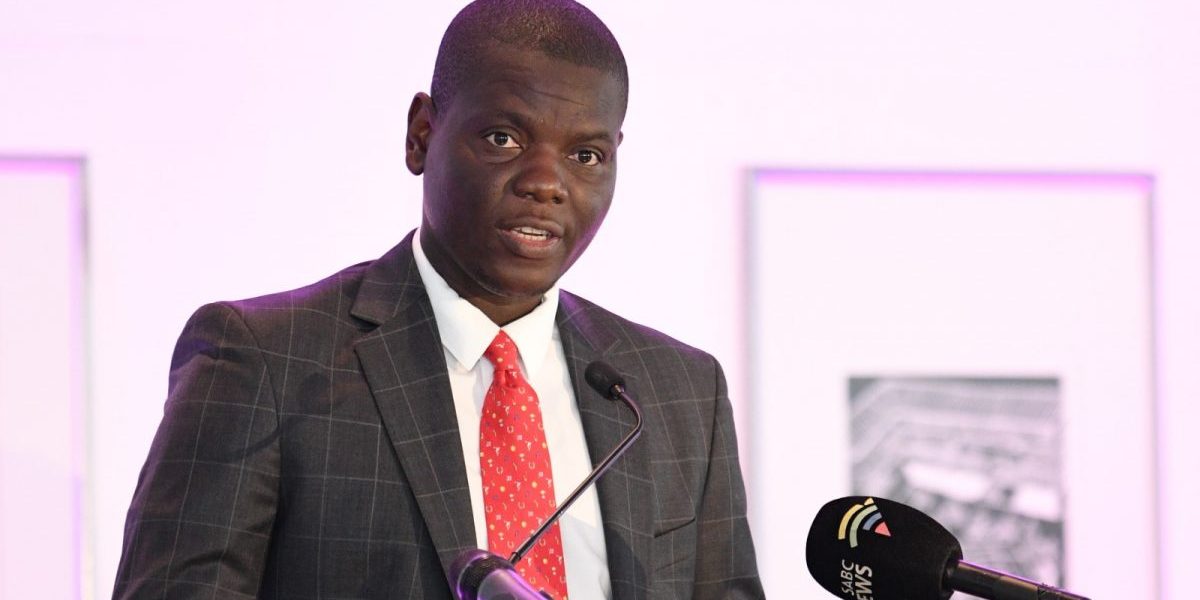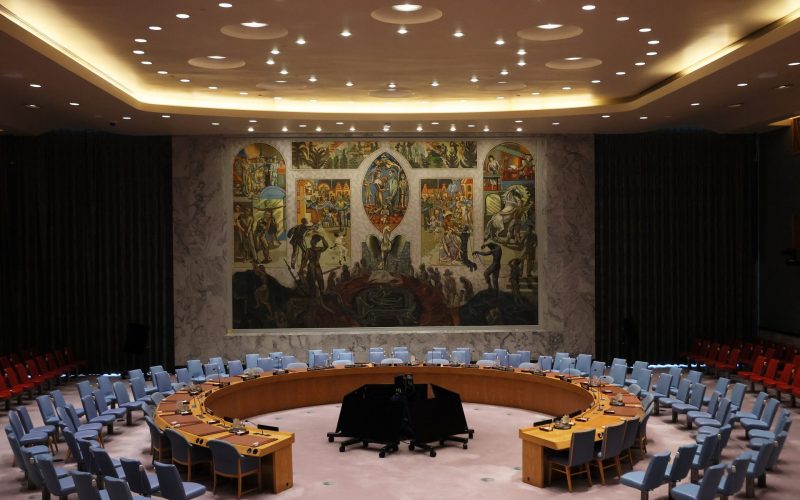The Government National Unity’s statement of intent commits to a foreign policy guided by human rights, constitutional principles, and the national interest, as well as solidarity and the peaceful resolution of conflict. The aim is to work towards achieving the African Agenda 2063, promoting cooperation between the global south and north, and fostering multilateralism. Ultimately, the goal is to contribute to the creation of a just, peaceful, and equitable world.
Global balance of forces
Societies worldwide are grappling with existential challenges, including climate change, disruptive artificial intelligence technology, geopolitical fragmentation, illegal migration, the rising cost of living, inequality, social cohesion, and insecurity. These issues have brought about social instability across borders. To effectively address these challenges, we need solidarity and collective action among progressive forces around the globe.
The evolving international world order necessitates the strengthening of the Non-Aligned Movement. South Africa, with its unique policy of active non-alignment, is not reactive but proactive in its pursuit of peace. This approach is not about being neutral or abstaining from world affairs, but about leading a unifying agenda through dialogue to achieve peace for developing countries that do not wish to take sides in great power rivalry.
As sovereign nations, we seek independent foreign policies aligning with our developmental priorities. This makes non-aligned countries useful mediators in conflicts like that between Russia and Ukraine.
The impact of the ongoing war between Russia and Ukraine has been felt globally, most notably on the African continent, as it has led to significantly increased consumer prices, particularly of food and energy. This underscores the critical need for immediate global cooperation to end conflicts and address their current economic impact.
South Africa coordinated the first-ever Africa Peace Initiative beyond the continent’s borders when President Ramaphosa led a delegation of six African Heads of State to Ukraine and Russia last year.
In the emerging world order, we are more cognisant than ever that economic prosperity largely depends on stability, peace, and respect for the rule of law. There can be no peace in any part of the world where people are being oppressed or struggling under the yoke of colonialism and occupation.
We will continue to engage the world as equals. South Africa’s “non-alignment” and “universality” posture will remain sacrosanct.
South Africa proudly places Africa at the centre of its foreign policy and is steadfastly committed to Agenda 2063. We aim to ensure the peace, development, and security of the continent, aligning with the aspirations of Agenda 2063 and the Sustainable Development Goals. We can be proud of our progress and confident in our future contributions.
We will continue to deepen and harness our relations with our partners on the continent. We have established 46 Structured Bilateral Mechanisms, 12 of which are at the Presidential Level. These mechanisms afford our country the opportunity to exchange views on national, regional, and global issues.
We believe a stronger AU will have a larger, more coordinated influence on global matters. Through the AU, we will ensure the implementation of the African Continental Free Trade Area (AfCFTA), a flagship project of Agenda 2063 aimed at creating a single African market. The AfCFTA will eliminate trade barriers and boost intra-African trade, advance trade in value-added production, and contribute to establishing regional value chains.
The African Development Bank’s Report on Africa’s Economic Outlook, published in May, asserts that Africa will continue to be the second fastest-growing region in the world. The publication projects that Africa will record an average of 3.7 per cent in real gross domestic Product (GDP) this year, which is slightly higher compared to the 3.2 per cent growth realised in 2023. This growth is a testament to the African continent’s potential and our foreign policy’s positive impact.
This trajectory augurs well for our endeavours to hasten the implementation of the AfCFTA. Our diplomatic missions on the continent continue to consolidate the existing economic ties and explore more areas to leverage the opportunities created by the AfCFTA.
Through cooperation with countries in our continent, we hope to ramp up manufacturing capacity, infrastructure development, and the building of regional value chains in the Southern Africa Development Community (SADC) to support intra-African trade. Given the continent’s abundant mineral endowment, we must ensure that these resources benefit our people through beneficiation and local value addition.
It is time for the continent to develop a common strategy for extracting and protecting our critical minerals, such as lithium. Africa is experiencing an intense scramble for these strategic minerals, and such a strategy would assist in preserving our supply.
Economic diplomacy
To stimulate economic growth, we must intensify our efforts to help South African companies and state-owned enterprises engage in meaningful opportunities in Africa. We are looking to strengthen our partnerships in Africa to address business challenges and create a favourable environment for conducting business.
We are pleased to report that South Africa has maintained its strong position as an investor in Africa over the past year, with over 450 projects in various countries. This achievement results from our coordinated approach and investment initiatives, and we commend the efforts of our development finance institutions, such as the Development Bank of Southern Africa and the Industrial Development Corporation.
We will continue working closely with our neighbours in the Southern Africa region to expand and strengthen collaboration in areas such as oil and gas, green hydrogen, and water resources, as well as improved movements of goods and services. These initiatives are important to bolster our economy and improve the livelihoods of our people while contributing towards the full attainment of the regional integration agenda.
Work is underway to hasten the completion of the Lesotho Highlands Water Project Phase II to increase energy cooperation with Mozambique and Namibia, and we are working to implement the renewed Grand Inga Treaty with the Democratic Republic of Congo.
We have established the Coordination Mechanism for Economic Diplomacy, consisting of government departments and the private sector. This mechanism aims to facilitate cooperation among relevant public and private sector stakeholders in advancing South Africa’s interests in Africa.
Peace keeping missions in SADC
We recognise the importance of achieving lasting peace and unity in our region to unlock its full potential. Therefore, we are committed to actively participating in SADC peace efforts and supporting post-conflict reconstruction within our means.
We must work towards fostering sustainable peace in Northern Mozambique following the conclusion of the SADC Mission in July 2024.
Additionally, we will maintain our engagement in peace and security efforts in Eastern DRC to support the country in achieving its development objectives.
Our hearts go out to our brave soldiers who sacrificed their lives in the line of duty in Mozambique and, most recently, the DRC. These individuals were true peacemakers, and we honour their service and sacrifice.
Solidarity in Palestine and Western Sahara
We need to redouble our efforts to work in solidarity with those who are resisting occupation, oppression, human rights abuses, and injustice. South Africa will continue to act within global institutions to protect the rights of Palestinians in Gaza and ensure the fair application of international law for all.
Notably, South Africa will continue to do everything within its power to preserve the existence of the Palestinian people as a group, to end all acts of apartheid and genocide against the Palestinian people and to walk with them towards the realisation of their collective right to self-determination and this informed our application to the International Court of Justice.
South Africa also led the referral by six states of the situation in Palestine to the International Criminal Court (ICC). We will continue preparing and managing the ICJ case against Israel and providing observations on the situation in Palestine before the ICC.
As our foreign policy is anchored in our history of solidarity with those struggling against oppression and occupation, we will continue to support the people of Western Sahara in their quest for self-determination. We call on the United Nations to take urgent steps towards holding the long-promised referendum on self-determination in Western Sahara – which is now the last colony left on the African continent – so that the Sahrawis can determine their destiny.
Multilateralism
Multilateralism is another key pillar of our foreign policy, and we have capitalised on our membership in several multilateral forums to advance the African agenda and work towards creating a more equitable rules-based multilateral system and a more just and equitable world. South Africa engages in international relations in accordance with its commitment to international law and justice, protecting human rights, and advancing peace and security.
South Africa has consistently advocated for the reform of global governance institutions such as the UN Security Council, which does not reflect current global political and economic realities and needs to be more representative of and responsive to the needs of the Global South. South Africa has also capitalised on its membership of BRICS and the G20 to place Africa and the Global South on the agenda.
As Africa’s voice increases in the G20 with the inclusion of the African Union as a permanent member, the calls for a transformed global order must be amplified. South Africa hosted the 15th BRICS Summit, expanding full membership to include Egypt, Ethiopia, Iran, and the United Arab Emirates, strengthening the African voice in BRICS. South Africa continues to play a central role in combatting climate change and was instrumental in securing COP28 outcomes.
We will continue to build this great nation, effectively address our most pressing national challenges, and forge greater unity on our continent. Our vision of realising a better South Africa, a better Africa, and a better world remains our driving mission.
– ENDS –
This speech was delivered during a symposium hosted by SAIIA and the Department of International Relations and Cooperation on 11 July 2024.








